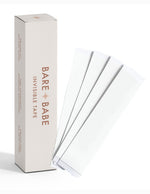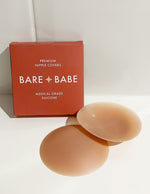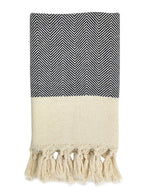
Tea has been touted for thousands of years for its many health benefits, tradition, and delicious taste. But there’s so much to know, where to start? Not to worry, follow our overview guide to get you started sippin’ in the right direction.
First things first - tea has a huge list of health benefits. While some are specific to the type, all true teas come from the Camellia Sinensis plant and then differ based on processing, so you can expect a pretty significant list of pros from sipping all tea, including:
- Hydrating
- Antioxidant-rich
- Protects bones and teeth
- May reduce risk of heart attack, stroke and even risk of cancer
- Calorie free (as long as you don’t add sugar)
- Boosts immune system
- Aids in digestion
- Less caffeine than coffee aka less harsh on your nervous system
- Soothing, calming, relaxing
And that’s just an overview! Let’s get into the specifics of types of teas.
Black Tea - The leaves of black tea are the most oxidized (allowed to dry out and wither) and have the highest caffeine content, so this is a great place to start if you’re looking to make the switch from coffee. Black teas (such as Darjeeling, Ceylon, and Earl Gray) are flavorful and robust and add a boost of energy without the dehydrating properties of coffee, while also being more gentle on the nervous system.
Oolong - Partially oxidized, oolong has a caffeine content in between black and green teas. The flavor is also on the middle ground and is said to be more fragrant (flowery or citrusty). Oolong has a smooth finish and has been shown to lower cholesterol levels.
Green Tea - Not oxidized but instead harvested, withered and then steamed or pan fired to dry. Green teas (such as Matcha, Gunpowder, Genmaicha, and Sencha) have an earthier flavor (depending on the type) and less caffeine than black or oolong. Its antioxidants have been shown to reduce the growth of cancers, prevent artery clogging, improve cholesterol levels, reduce stress on the brain, and reduce risk of neurological disorders.
Read Also: An Indoor Herb Garden Anyone Can Start
White Tea - The least processed, white tea is made from baby leaves dried in the sun. White teas (such as Silver Needle and White Peony) are the most delicate in flavor and have also been shown to have the most anti cancer properties.
Herbal - Technically, herbal teas are not teas at all, but infusions made from steeping herbs, flowers, spices or roots (take this fact to your next dinner party) but they’re worth mentioning for their more specific health benefits.
- Chamomile - soothing, helps promote sleep
- Peppermint - great for easing digestion and all things stomach related, antiviral
- Ginger - fights inflammation, stimulates the immune system, great for nausea and period pain
- Rose Hip - high in vitamin C, helps reduce inflammation and pain
- Passionflower - can improve sleep and reduce anxiety
Read More: 4 Quick Tricks to Reduce Stress Right When You Feel It
So now you know, teas are not only delicious, but have so many health benefits. Which tea are you going to try first? If you’re already a tea drinker, tell us which one you always keep on hand in the comments!






















 TOP
TOP



